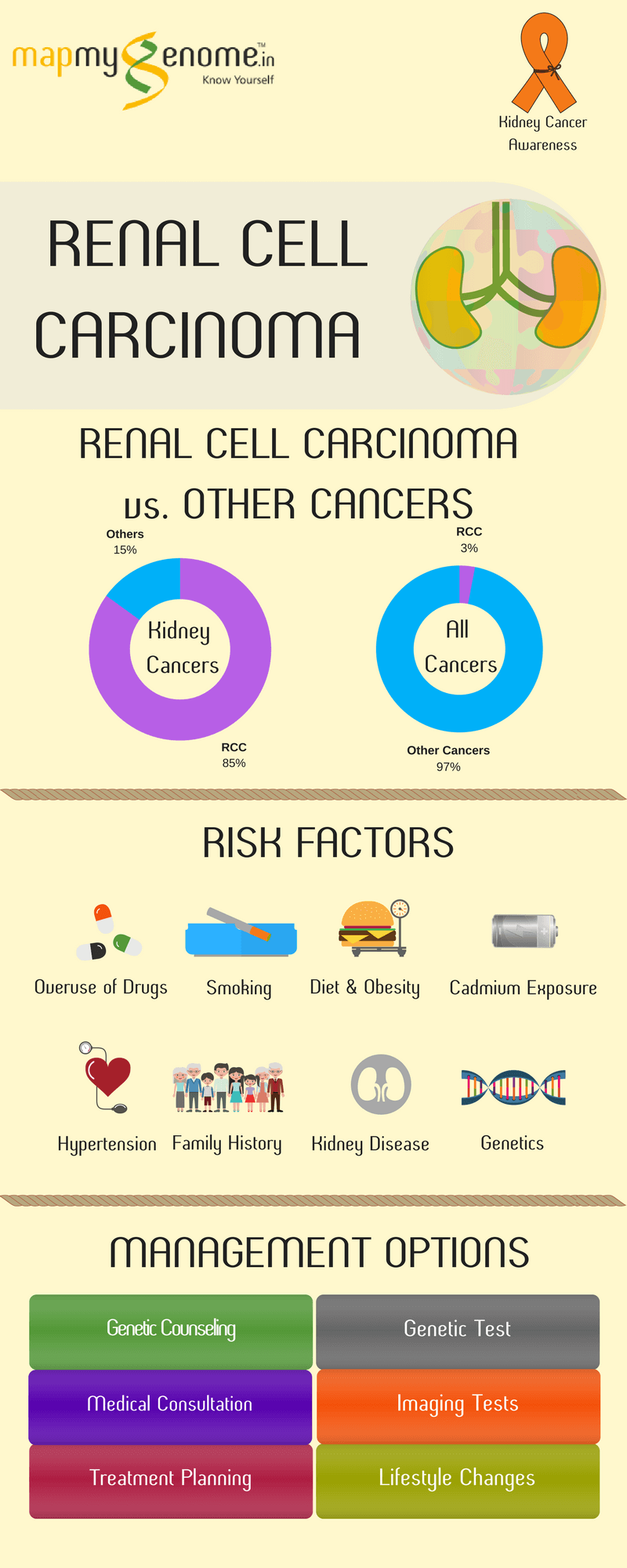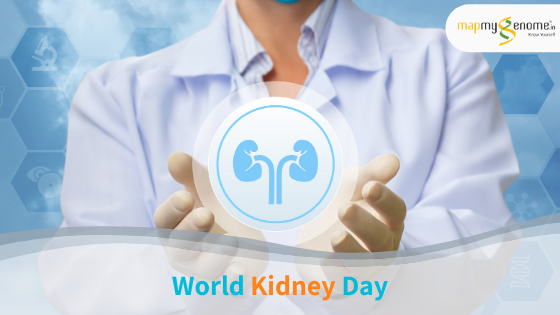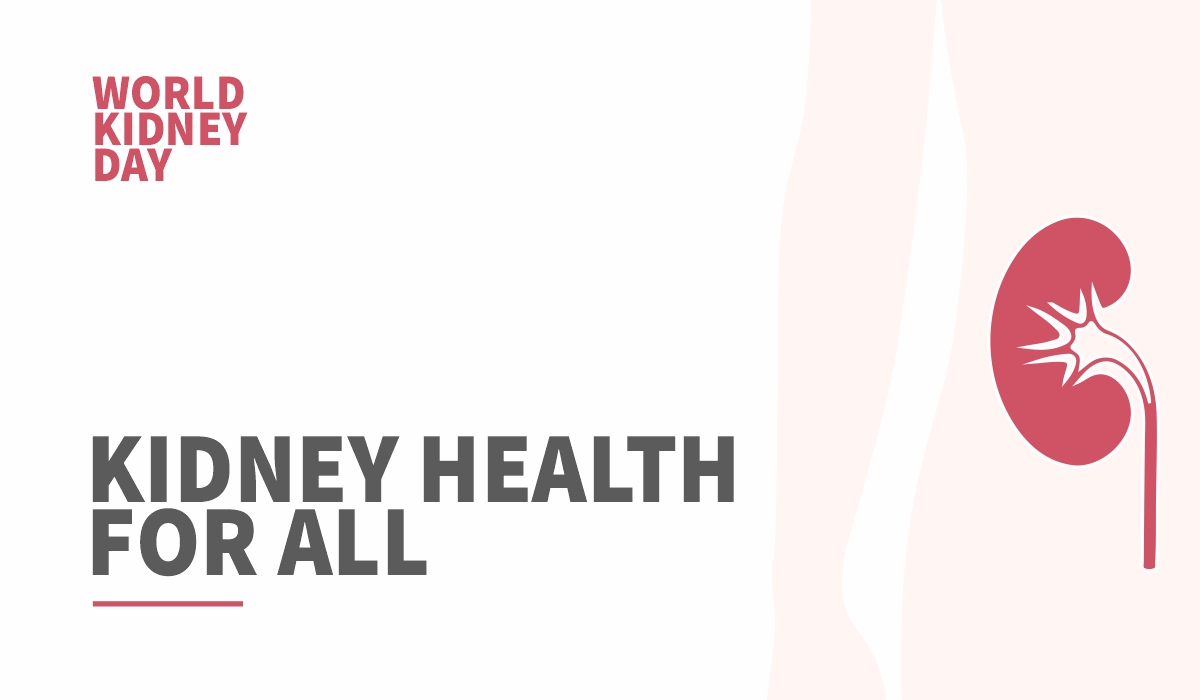
One of my uncles is suffering from Chronic Kidney Disease (CKD) and has to undergo dialysis thrice a week. This process itself is very tedious and time consuming and then an unexpected challenge was added to this already difficult process, the global pandemic of Covid 19. Every visit to the hospital increased his risk of getting infected which made him vulnerable to his own on-going treatment. Such unforeseen situations, including even natural disasters such as earthquakes, floods, hurricanes, extreme weather conditions, or even wars are what we should be ready for, to make sure individuals with CKD and other chronic diseases do not have to bear any increased burden.Being prepared for the unexpected is very important for individuals with such diseases.
Interestingly, the theme for this year’s World Kidney day is “Preparing for the unexpected, supporting the vulnerable.” The above-mentioned unfortunate and unforeseen events often affect the community as a whole and there are about 850 million people worldwide who are affected with kidney diseases, making them even more vulnerable under such conditions. The major challenge is these events disrupt the usual diagnostic services, ongoing treatment, and care for people with chronic conditions, and hence tackling these health challenges is this year's top priority.
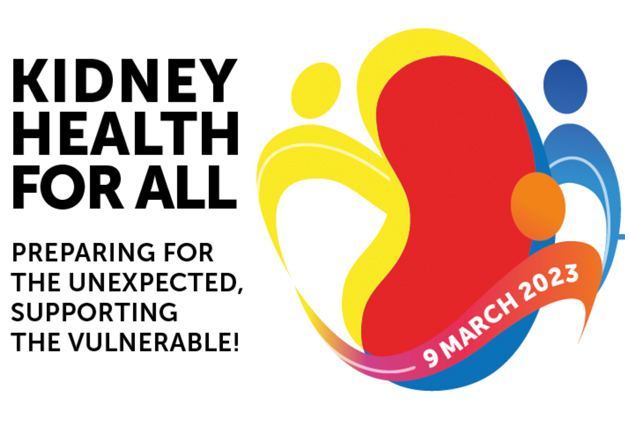
Know Your Kidneys Well
Chronic kidney disease happens due to the gradual loss of kidney function, and is hence also known as chronic kidney failure. There is a very high prevalence in India for CKD. In different regions it ranges from <1% to 13%, and based on the recent data from the International Society of Nephrology's Kidney Disease Data Center Study, an average prevalence of 17% was reported. Since the pandemic began in 2019, the healthcare system has faced many challenges in providing optimal health services. Individuals with CKD being one of the vulnerable groups, it is important to better prepare them, by making people more aware of this condition, its symptoms, causes, prevention, and management.
The common symptoms to look out for in the case of CKD includes nausea, vomiting, loss of appetite, fatigue and weakness, sleep problems, urinating more or less, decreased mental sharpness, muscle cramps, swelling of feet and ankles, dry, itchy skin, high blood pressure, shortness of breath, chest pain, etc. Although many of these symptoms can also be caused by other illnesses, it is recommended to talk to your doctor if you or your loved ones have any such signs or symptoms as part of early detection and management.
Chronic kidney disease does not occur suddenly but progresses gradually over several months or years when any disease or condition impairs the kidney function. The most common causes are:
- Type 1 or type 2 diabetes
- High blood pressure
- Glomerulonephritis (inflammation of the kidney's filtering unit)
- Interstitial nephritis (inflammation of the kidney's tubules and surrounding structures)
- Prolonged obstruction of the urinary tract (enlarged prostate, kidney stones, and some cancers)
- Vesicoureteral reflux (urine flowing back up into your kidneys)
- Recurrent kidney infection (pyelonephritis)
- Genetic causes such as Polycystic kidney disease or other inherited kidney diseases
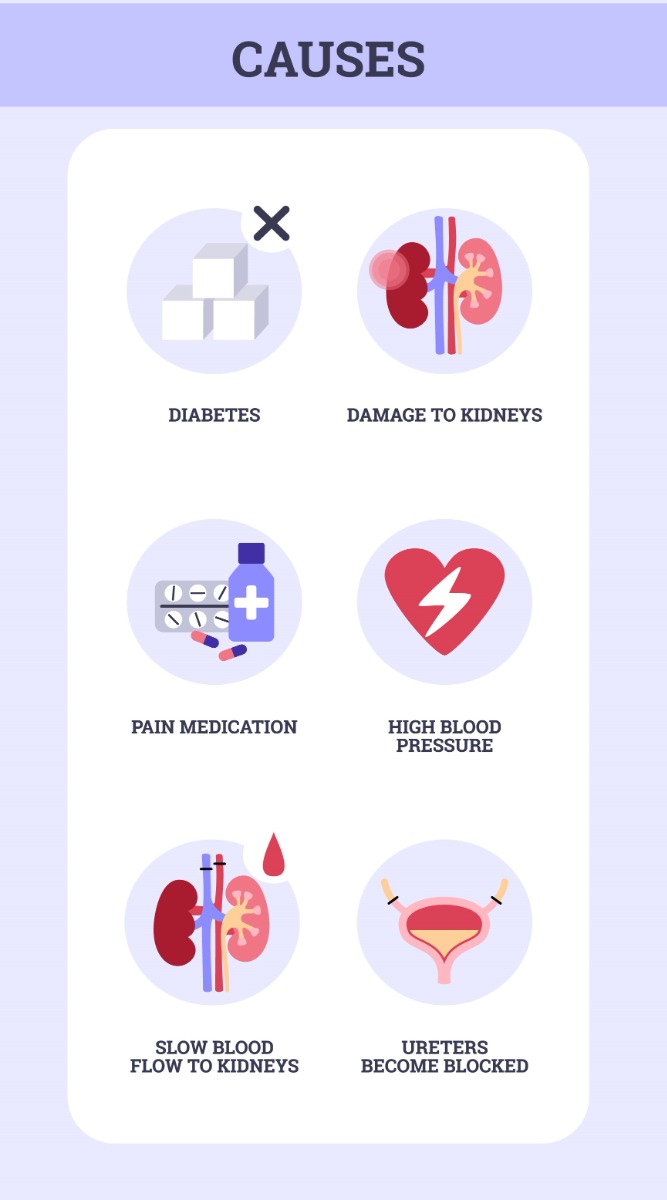
Don’t Fail To Prepare
For proper management of CKD, the first step is to know your risk factors. The factors that increase the risk of chronic kidney disease are diabetes, high blood pressure, cardiovascular disease, smoking, obesity, abnormal kidney structure, frequent use of medications that can damage the kidneys, a family history of kidney disease, and genetics.
This year’s theme puts the focus on the prevention of CKD and delaying the progressions by timely interventions which should not be affected by any unexpected circumstances. While a part of this lies in the hands of the governing bodies and authorities of the healthcare system, a major part of it can be taken care of by the individual itself. Make these proactive changes to your lifestyle to help prevent or delay the onset and reduce the severity of CKDs:
- Quit smoking
- Reduce alcohol intake
- Keep your body well hydrated
- Follow a low-salt, low-fat, low-sugar diet
- Maintain a healthy BMI by including moderate intensity aerobic activity as well strength training
- Monitor your sugar levels, lipid levels, and blood pressure routinely and manage any underlying health conditions
Since genetics also plays a major role in the development of kidney conditions, it is recommended to talk to a genetic counselor, to understand your risk of developing kidney conditions, especially if you have a strong family history. A proper analysis of your family history, personal medical history, combined with the right genetic testing options, can help you find out if you are predisposed to developing such conditions, thereby giving you a heads up in taking the proper management, effective treatment, or even prevention.
India has unique situations and challenges that come in the way of an early diagnosis and management of CKD. However, the good news is that the WHO Package of Essential Noncommunicable Disease Interventions promises hope for prevention of CKD. So, on this world kidney day, let us make a promise to ourselves and for our loved ones, to be aware of this condition and to make all the necessary interventions to make sure that early detection for CKD can be done so that, even in case of an unexpected event, we are better prepared to face them.


